
The Early Years Learning Framework is the basis for the Curriculum and Program planning in our centres. Providing opportunities for children to learn through play is one of the practices specified in the document.
Researchers have been studying how young children learn for many decades, and there is a huge amount of evidence of the benefits children gain through play. Some of these are –
- Developing of gross and fine motor physical skills and co-ordination

- Improving health through active play
- Learning the skills of social interaction when playing with others
- Improving awareness of their emotional reactions, and learning appropriate behaviours
- Strengthening their sense of well being and mental health by engaging in enjoyable activities. Wellbeing is also promoted by successfully meeting challenges
- Enriching imagination through dramatic and pretend play
- Promoting creativity, not only through arts and crafts, but by using objects in innovative ways
- Stimulating language development through interactions
- Learning problem solving skills
- Gaining basic understanding of maths, science
 It is exciting to learn that in recent times, Neuroscience has been used in this research. We are now better able to understand the changes which take place in developing brains, and the factors which aid or inhibit optimal outcomes for children. Play can –
It is exciting to learn that in recent times, Neuroscience has been used in this research. We are now better able to understand the changes which take place in developing brains, and the factors which aid or inhibit optimal outcomes for children. Play can –
Increase BDNF, essential for brain cell growth
Active exercise and Vitamin D gained from outside play are factors which are thought to increase BDNF which is a substance essential for the growth of brain cells. Higher levels of BDNF are thought to improve memory, enable faster learning, rewire the brain, and help to protect it from damage from stress.
Enhance Metacognition
Metacognition is a higher order thinking which enables us to think about and regulate our own thinking. It refers to the processes used to plan, monitor, and assess one’s understanding and performance. It also includes knowledge about when and how to use different strategies for learning or problem-solving.
Researchers have found that engaging in social pretend and dramatic play develops this vital skill in young children. Promote Metacommunication
Promote Metacommunication
Metacommunication is all the nonverbal cues we use to enhance the meaning of our words. Examples are tone of voice, body language, gestures or facial expressions.
Children engaged in social pretend play, or dramatic play, enrich their verbal language with accompanying appropriate gestures, usually ones they have observed in use by familiar adults.
Develop Social Referencing
Social Referencing involves, checking others cues before acting, which is a useful skill for developing social skills and empathy.
Increase Understanding of others’ Intentions, Understanding that the play is a pretend world, Understanding that objects can be symbols, and Learning there can be alternative ways of looking at the world
These are other cognitive skills acquired through social pretend play. How children acquire these skills is increasingly a focus of research.
Early childhood educators have known of the enriching benefits of play for many decades. Neuroscience is now confirming these benefits, as well as finding even more compelling reasons for children to learn through play.
References
https://www.parentingscience.com/benefits-of-play.html
https://www.kidsmatter.edu.au/mental-health-matters/social-and-emotional-learning/play
Neuroscience and learning through play: a review of the … – Lego cache.lego.com/r/legofoundation/-/media/…/neuroscience%20review_web.pdf?l.r2…

Our Kindergarten Curriculum includes a Montessori Program overseen by our Early Childhood Teacher, who has qualifications in Montessori education. We are currently offering the structured program to the children in Kindy.
In this post we give you a brief introduction to the Montessori education method and philosophy. We believe that the Montessori philosophy blends well with our centre philosophy, and the Montessori education method aligns well with our exceptional educational programs. Children in Kindy will have enhanced school readiness through using the hands-on materials for learning letters and mathematical concepts, and through experiencing the wider Montessori curriculum.
The Montessori Method 
The Montessori Method of education, developed by Dr. Maria Montessori, is a child-centred educational approach based on scientific observations of children from birth to adulthood. Dr. Montessori’s Method has been time tested, with over 100 years of success in diverse cultures throughout the world.
It sees children as naturally eager for knowledge and capable of initiating learning in a supportive, thoughtfully prepared learning environment. It is an approach that values the human spirit and the development of the whole child—physical, social, emotional, cognitive.
Benefits of Montessori Education
Montessori students learn to think critically, work collaboratively, and act boldly—a vital skill set for the 21st century. Montessori education offers children opportunities to develop their potential as they step out into the world as engaged, competent, responsible, and respectful citizens with an understanding and appreciation that learning is for life.
Each child is valued as a unique individual. Montessori education recognizes that children learn in different ways, and accommodates all learning styles. Students are also free to learn at their own pace, each advancing through the curriculum as he/she is ready, guided by the teacher and an individualized learning plan.
Beginning at an early age, Montessori students develop order, coordination, concentration, and independence. Classroom design, materials, and daily routines support the individual’s emerging self-regulation.
Students are part of a close, caring community. The multi-age classroom resembles a family structure. Older students enjoy being mentors and role models; younger children feel supported and gain confidence. Teachers model respect, loving kindness, and a belief in peaceful conflict resolution.
Montessori students enjoy freedom within limits. Working with their teachers, students are active participants in deciding what their focus of learning will be. The child’s curiosity and interest results in joyous learning.
Students are supported in becoming active seekers of knowledge. Teachers provide environments where students have the freedom and the tools to pursue answers to their own questions.
Self-correction and self-assessment are an integral part of the Montessori education. As they mature, students learn to look critically at their work, and become adept at recognizing, correcting, and learning from their errors.
There are four areas of learning in a Montessori 3-6 class:
Practical Life
In this section of work, children find materials and exercises from their every day life – eg. pouring water from a jug to a glass, or learning how to tie a shoelace. These activities help children’s independence.
Sensorial
Activities in this section allow children to refine each of their senses. They will appreciate color or texture differences, organise objects in the environment and refine their sense of pitch from the music they hear .
Language
Children are taught language through a progression of lessons. They first learn the different sounds in a word. Children then learn language phonetically. Later they learn the different “rules” in language and the exceptions to those rules. They will learn to spell and read fluently
Mathematics
Children first learn to count from 1-10 through understanding the concept that those numbers represent a specific amount. Progressing through the materials children will learn addition, subtraction, multiplication and division and truly understand what each one means in a deeper sense. Montessori offers the child a strong and solid foundation in the understanding of mathematics.
Culture
The Cultural area of the Montessori classroom covers a variety of subjects. Geography, Science, Botany, Zoology, and History are included. Art and Music are also considered a part of the Cultural Area of the classroom. Maria felt that having knowledge and understanding of such subjects is what makes one a “cultured” person.
Sites on the internet that have videos of the materials, and explanations of the equipment are –
 https://montessori.org.au/about-montessori
https://montessori.org.au/about-montessori
Montessori Australia Foundation (2017) https://montessori.org.au/montessori-materials
http://www.infomontessori.com
http://www.justmontessori.com/


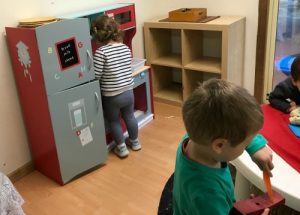 It is exciting to learn that in recent times, Neuroscience has been used in this research. We are now better able to understand the changes which take place in developing brains, and the factors which aid or inhibit optimal outcomes for children. Play can –
It is exciting to learn that in recent times, Neuroscience has been used in this research. We are now better able to understand the changes which take place in developing brains, and the factors which aid or inhibit optimal outcomes for children. Play can –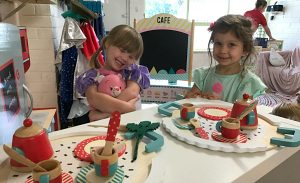 Promote Metacommunication
Promote Metacommunication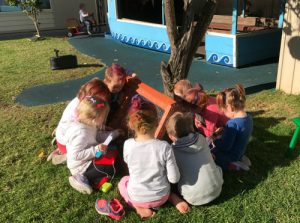
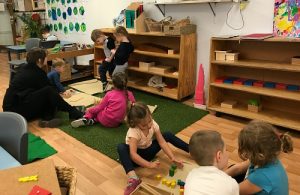
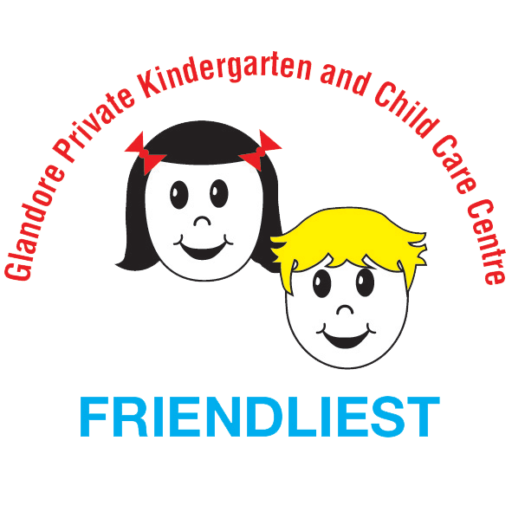

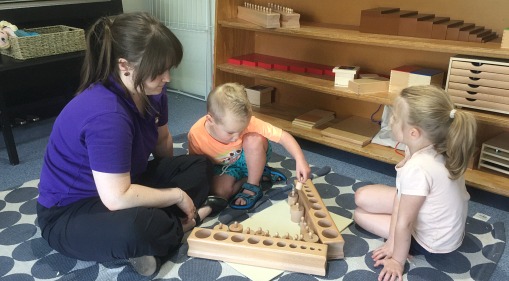
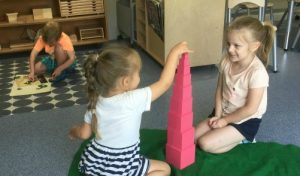

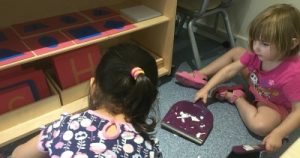
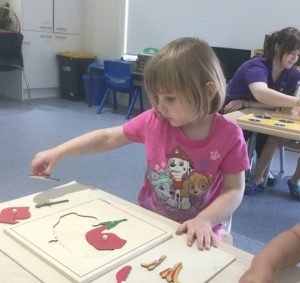 https://montessori.org.au/about-montessori
https://montessori.org.au/about-montessori